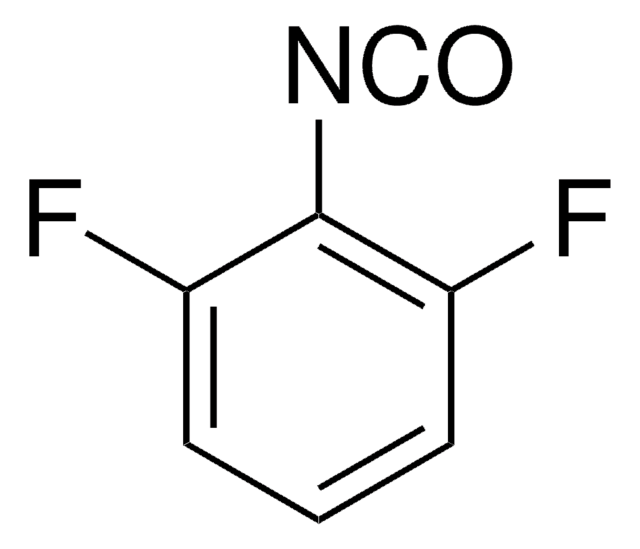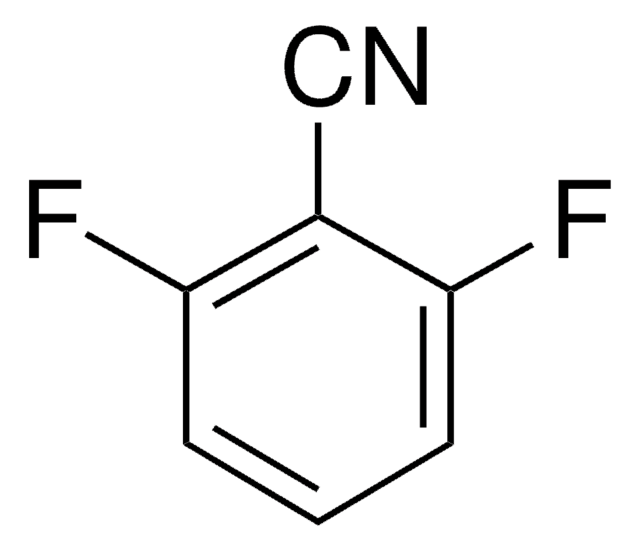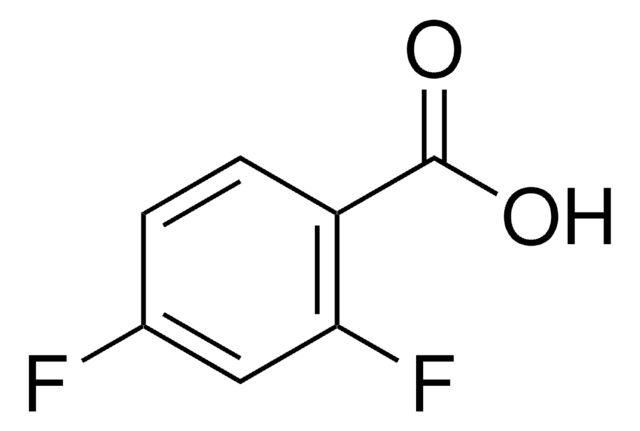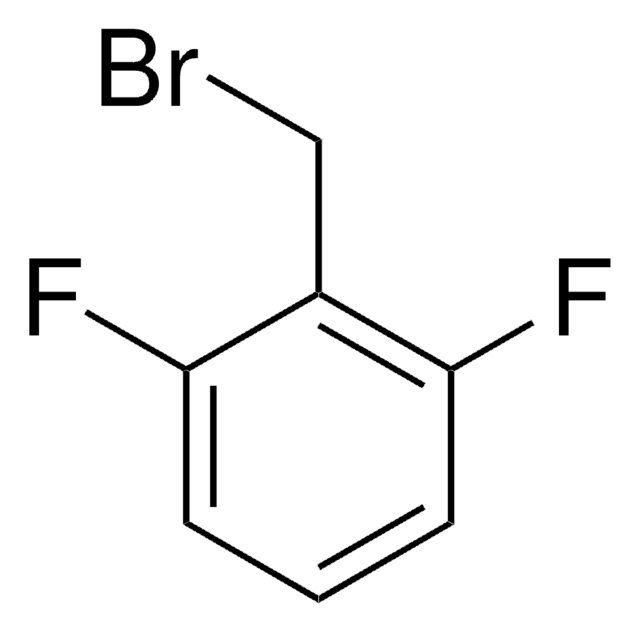282278
2,6-Difluorobenzamide
97%
About This Item
Productos recomendados
Quality Level
assay
97%
form
solid
mp
145-148 °C (lit.)
solubility
ethanol: soluble 5%, clear to turbid, colorless to light yellow
functional group
amide
fluoro
SMILES string
NC(=O)c1c(F)cccc1F
InChI
1S/C7H5F2NO/c8-4-2-1-3-5(9)6(4)7(10)11/h1-3H,(H2,10,11)
InChI key
AVRQBXVUUXHRMY-UHFFFAOYSA-N
¿Está buscando productos similares? Visita Guía de comparación de productos
Categorías relacionadas
General description
signalword
Warning
hcodes
Hazard Classifications
Acute Tox. 4 Oral
Storage Class
11 - Combustible Solids
wgk_germany
WGK 1
flash_point_f
Not applicable
flash_point_c
Not applicable
ppe
dust mask type N95 (US), Eyeshields, Faceshields, Gloves
Elija entre una de las versiones más recientes:
¿Ya tiene este producto?
Encuentre la documentación para los productos que ha comprado recientemente en la Biblioteca de documentos.
Nuestro equipo de científicos tiene experiencia en todas las áreas de investigación: Ciencias de la vida, Ciencia de los materiales, Síntesis química, Cromatografía, Analítica y muchas otras.
Póngase en contacto con el Servicio técnico









